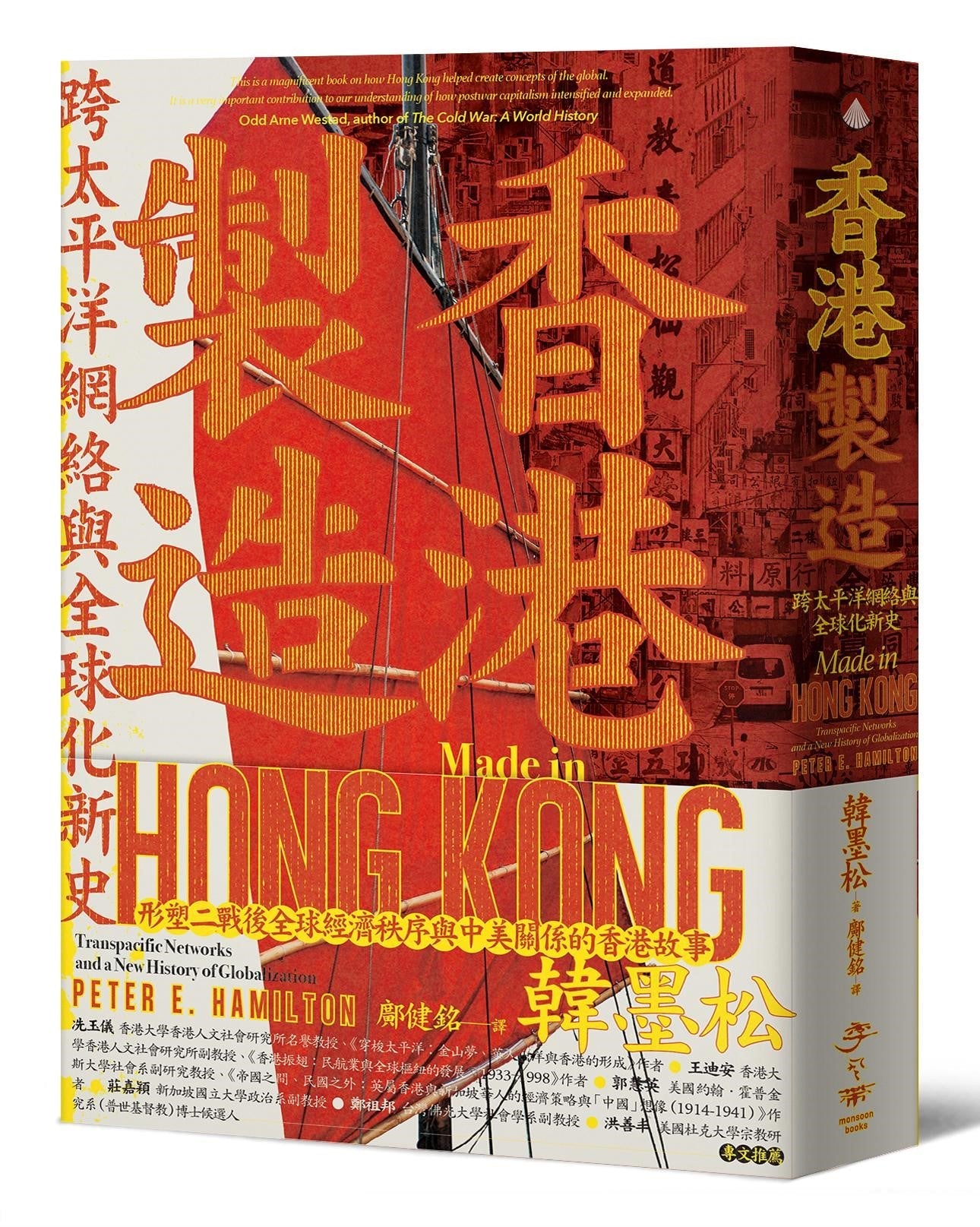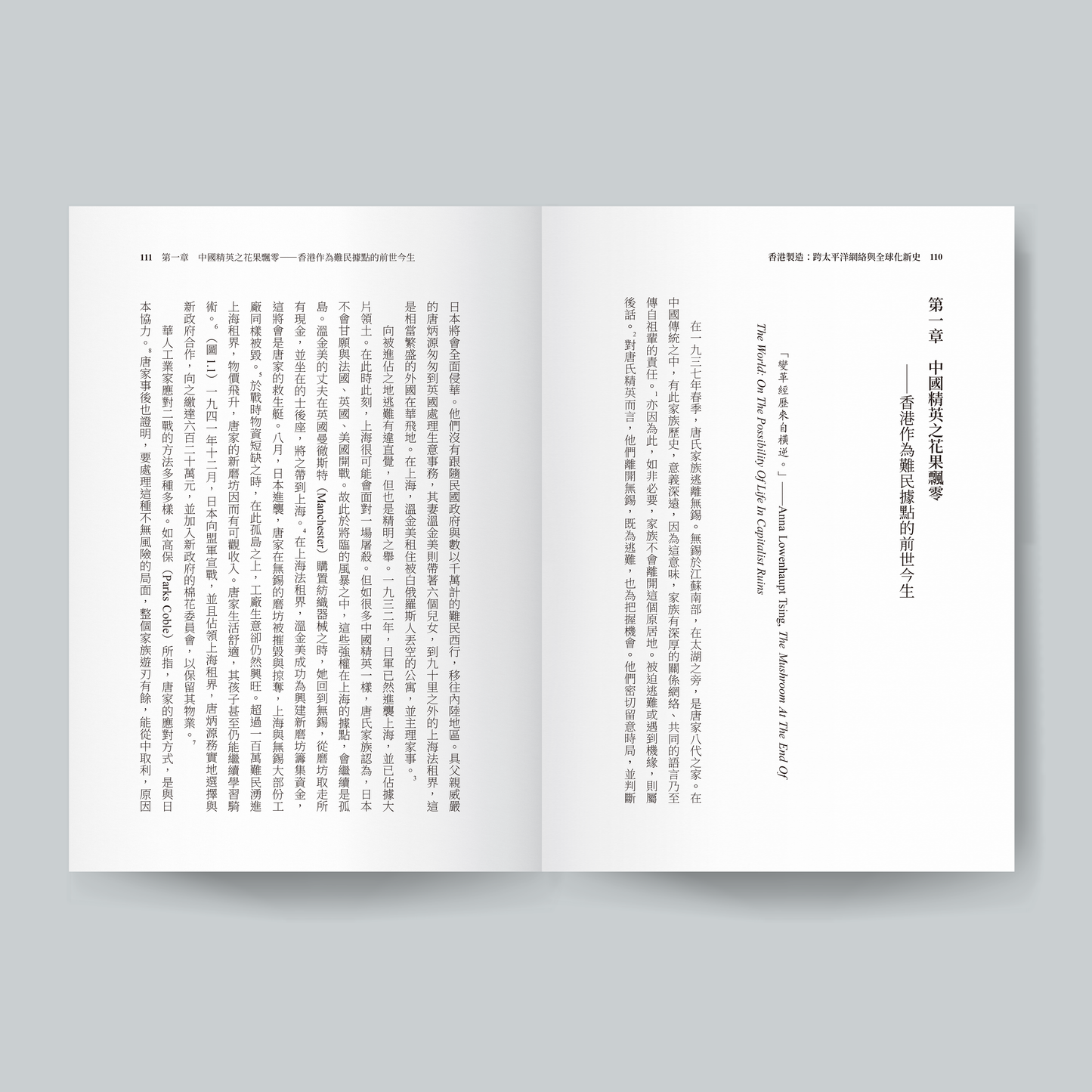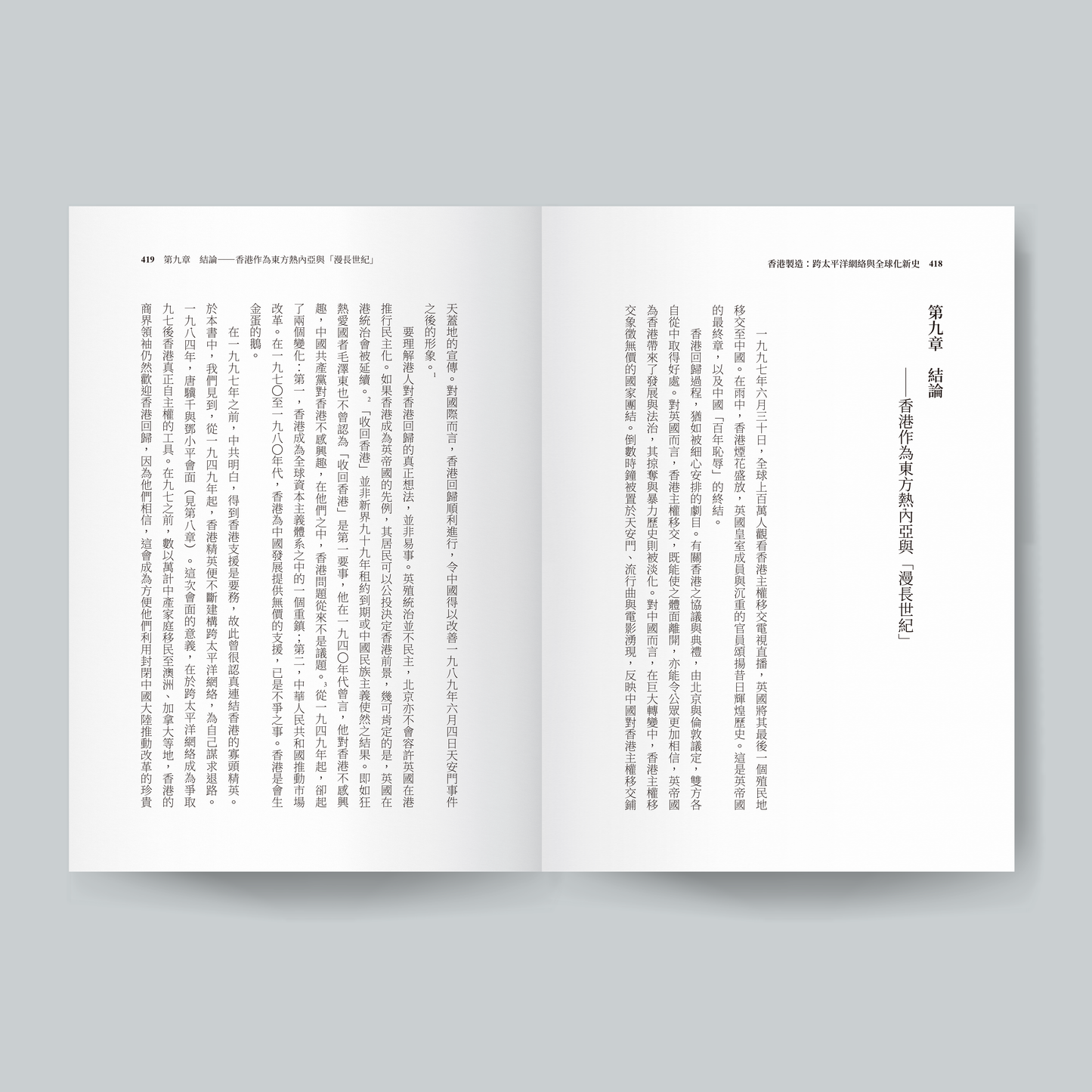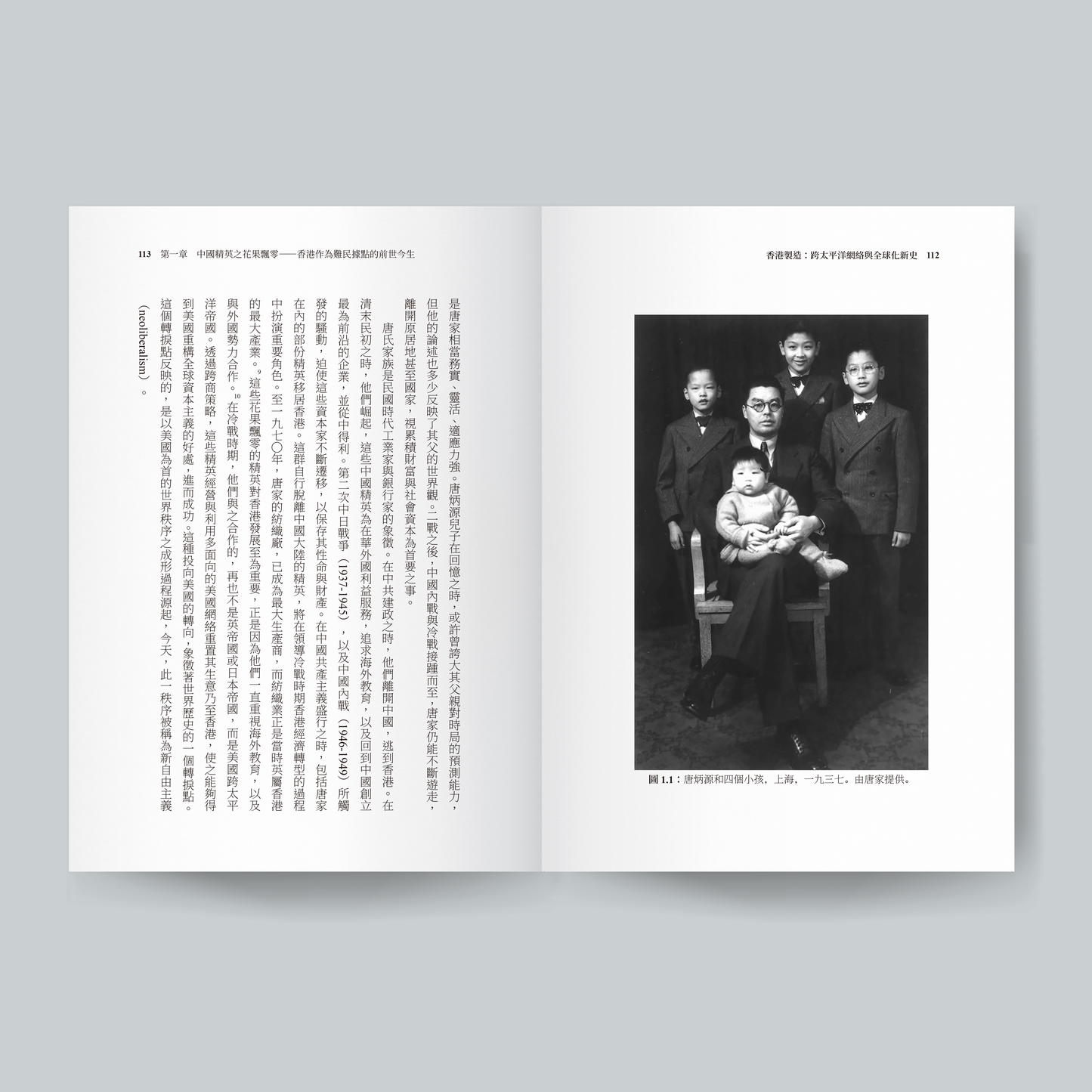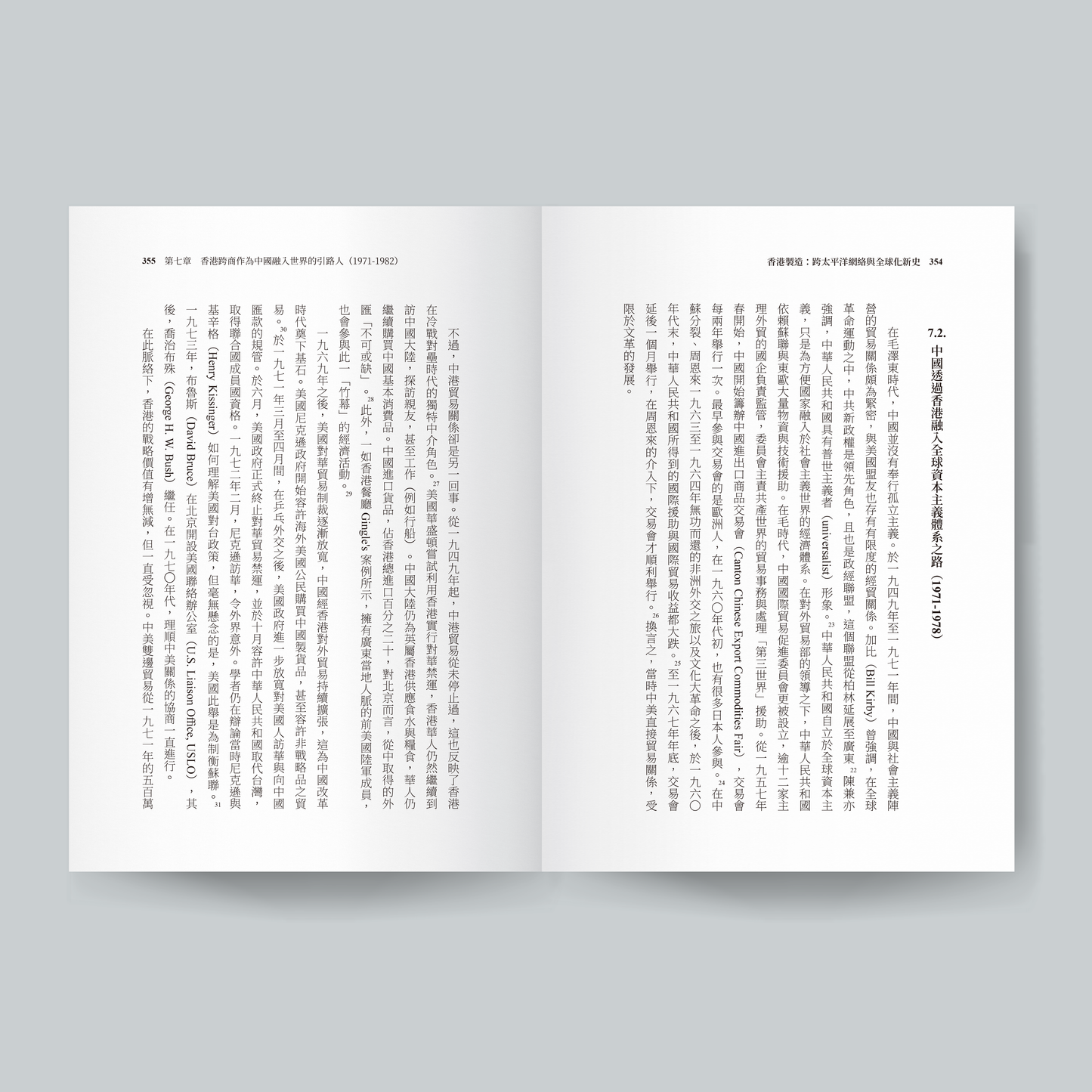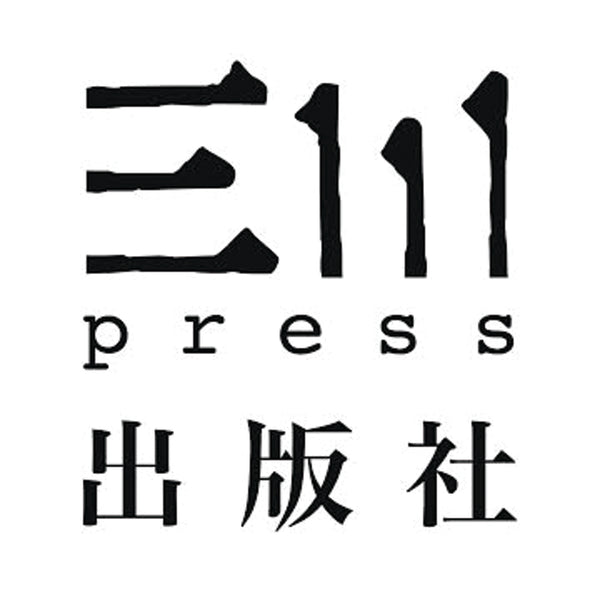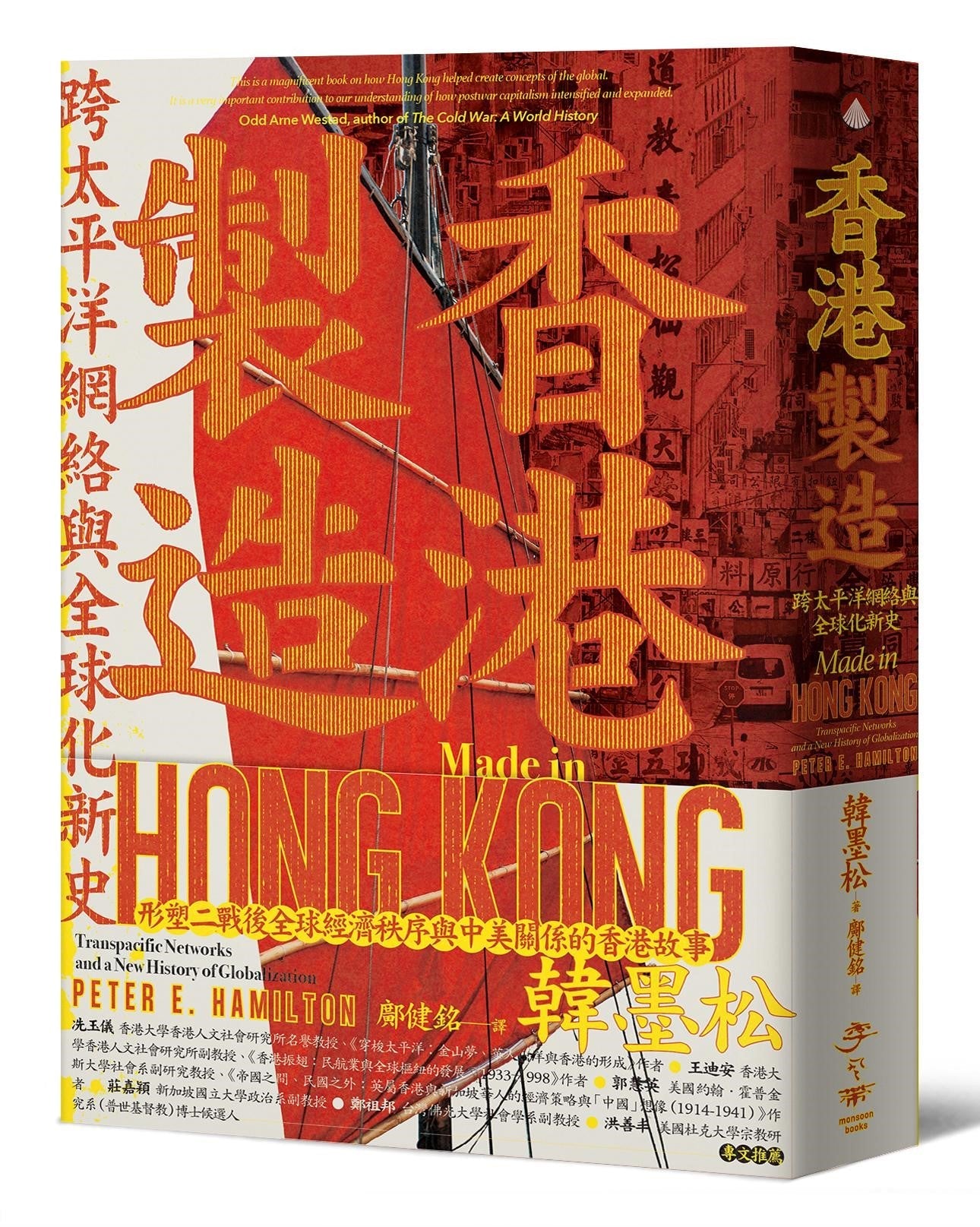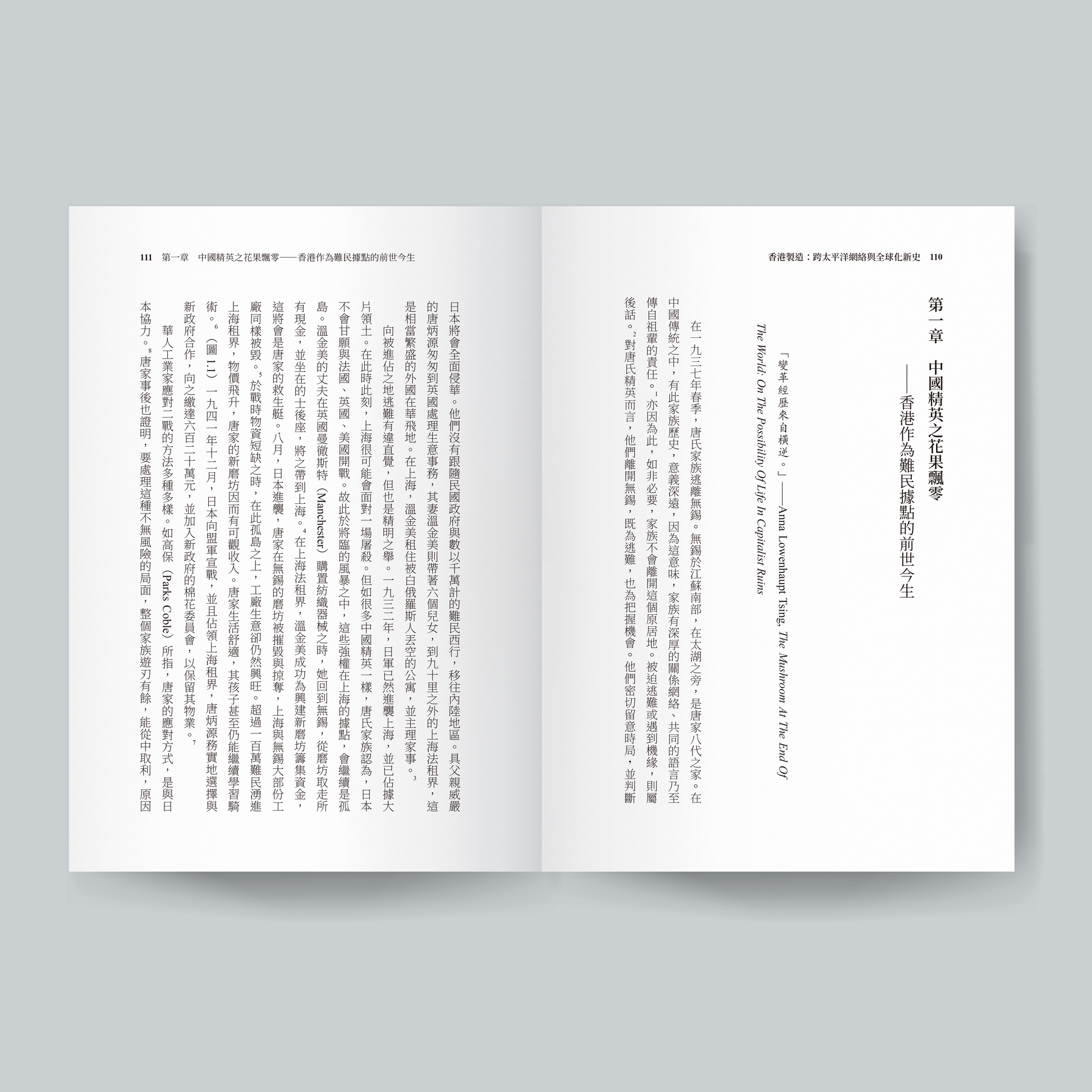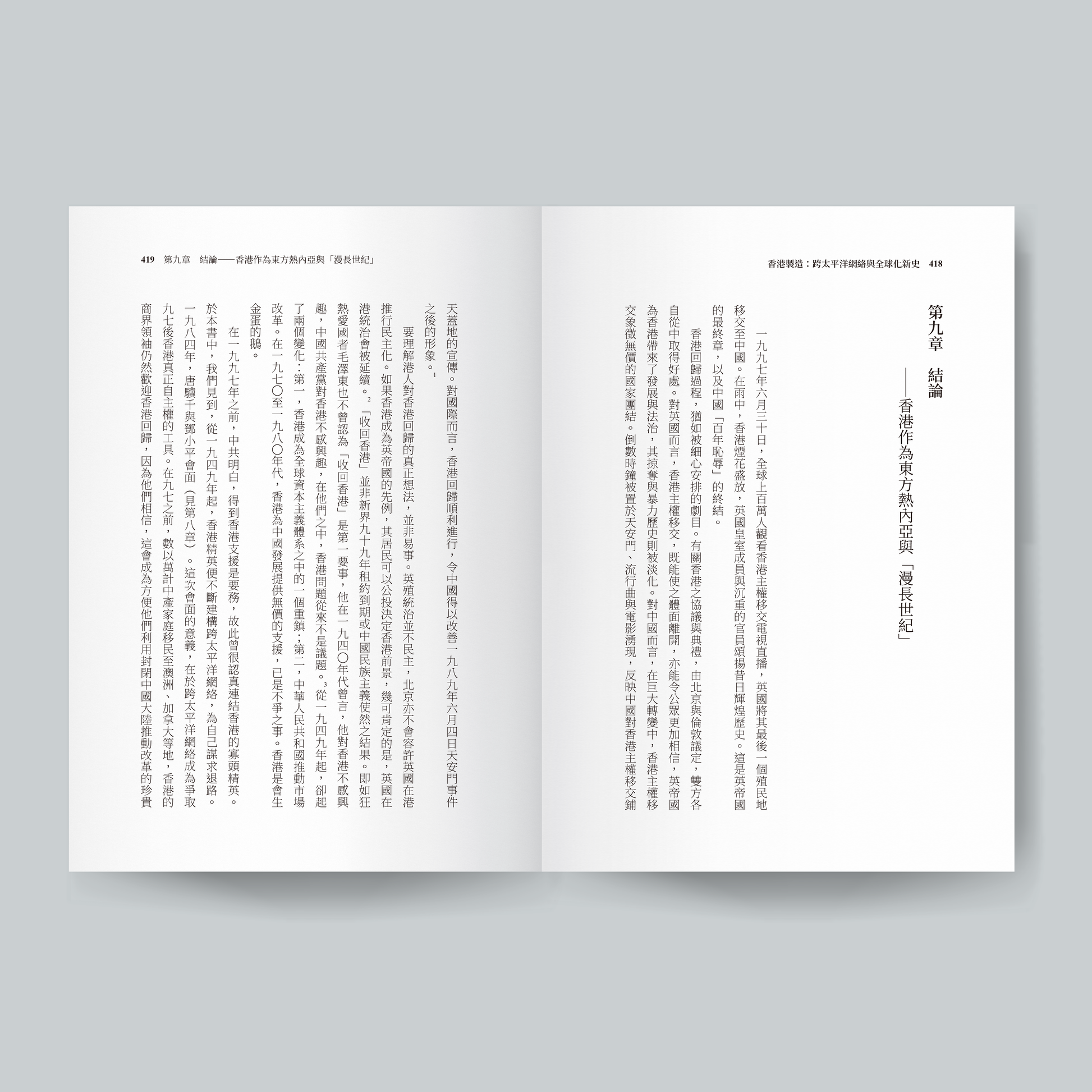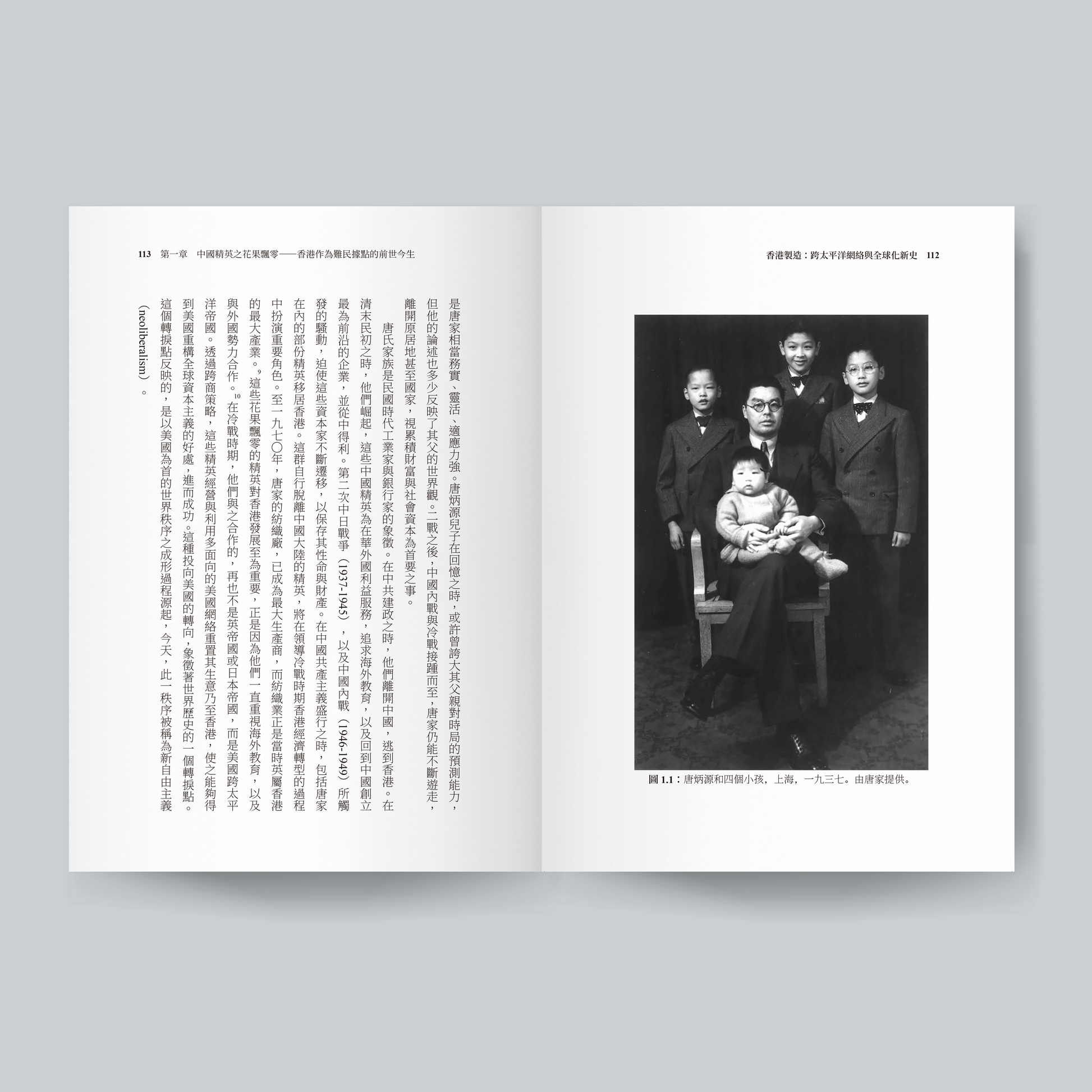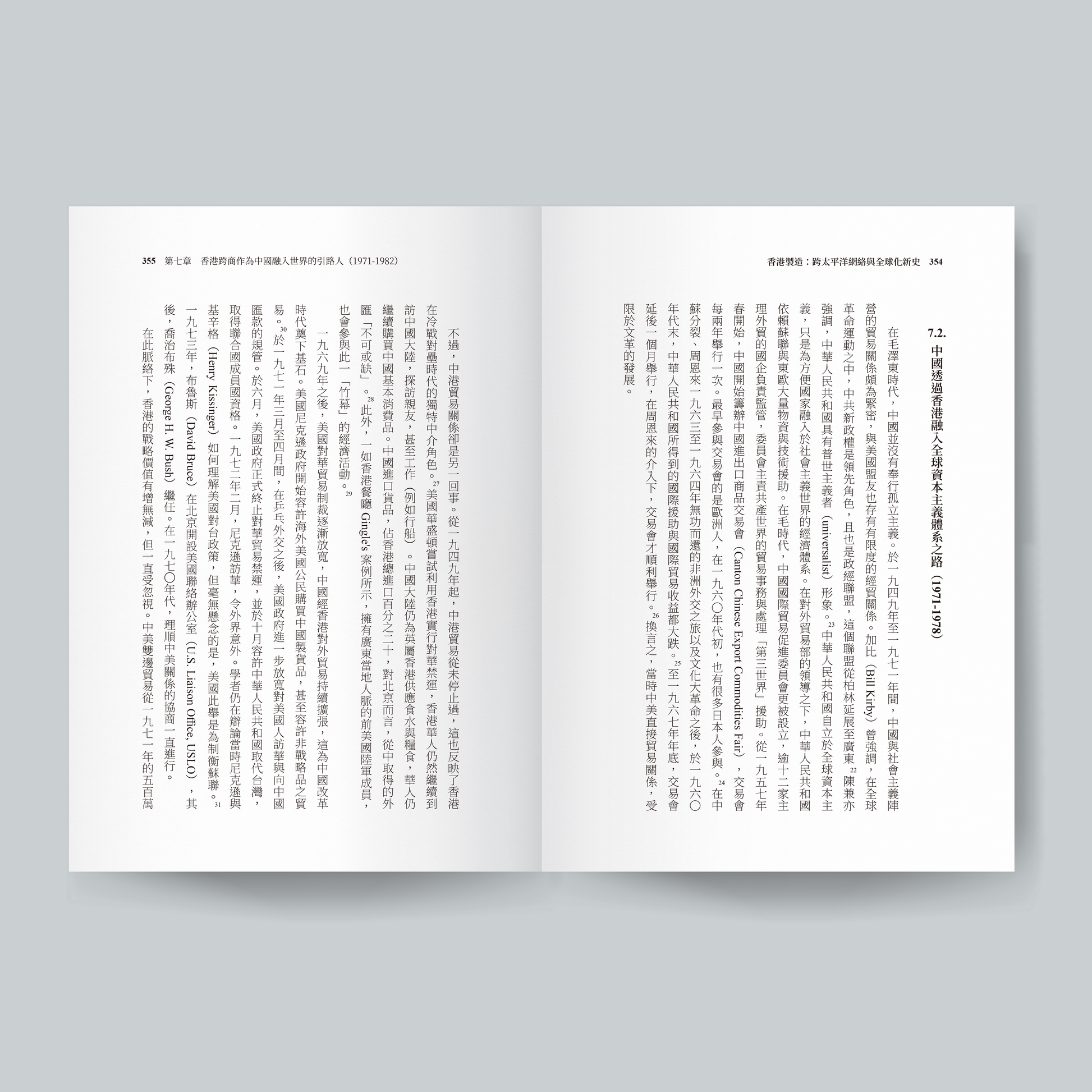Made in Hong Kong: Trans-Pacific Networks and a New History of Globalization
Made in Hong Kong: Trans-Pacific Networks and a New History of Globalization
5 in stock
Couldn't load pickup availability
出版社: 季风带
ISBN/EAN: 9786269672271
出版日期: 2024-02-07
页数: 556页
语言: Traditional Chinese
★Eslite Bookstore's February Book Selection
★How did the “cross-business strategy” take shape in modern China?
★How does the “cross-business strategy” spread southward and bear fruit in Hong Kong?
★How did the “cross-business strategy” utilize British Hong Kong to radiate influence outward, broker Sino-US relations, and assist the United States in establishing its post-World War II global capitalist system?
Made in Hong Kong: A New History of Trans-Pacific Networks and Globalization rewrites trans-Pacific history with Hong Kong as the center. This book mainly describes two points:
First, Hong Kong's social development after World War II was significantly influenced by the United States. After World War II, Hong Kong society had already begun a process of "informal decolonization" during the British colonial era through "Americanization";
Second, Hong Kong played a crucial role in the development of the global political and economic system after World War II. The dissemination and application of cutting-edge American business knowledge, the reconfiguration of transnational production supply chains, and even the establishment and consolidation of Sino-US relations all benefited from Hong Kong. This role of Hong Kong is often overlooked by commentators.
Hong Kong's crucial role stems from two major factors: Hong Kong's "cross-business strategy" and the political and economic needs of the United States during the Cold War.
The origins of "cross-border business" can be traced back to the 19th century. At that time, members of wealthy Jiangnan merchant families often attended American missionary schools in China and subsequently studied abroad in the United States. After the Communist Party of China came to power in 1949, many of these Chinese elites migrated south to Hong Kong to rebuild their businesses. Their American education made it easy for them to obtain the necessary funds, knowledge, intelligence, and even sales networks from relevant American channels. It can be said that without examining the relationship between American social capital and Hong Kong, a thorough understanding of the history of Hong Kong's industrial development, and even its connection to Sino-US relations, is impossible. Driven by the political and economic needs of the United States after World War II, American missionaries in China, as well as American companies and chambers of commerce, who also migrated south to Hong Kong, joined forces with these "cross-border business" elites in Hong Kong. They utilized American resources to establish schools, residences, and community training centers in Hong Kong, while also radiating Hong Kong's influence abroad. This helped Hong Kong leap from the "Third World" to the "First World," and even led China's integration into the global system. Simultaneously, American economic influence spread, helping to shape a new global capitalist system centered on the United States.
"Made in Hong Kong: A New History of Trans-Pacific Networks and Globalization" is a rare research masterpiece that combines local political and economic development with international relations. It is a model of looking back at local stories from a cross-domain perspective.
Peter E. Hamilton
He is currently an Assistant Professor in the Department of History at Lingnan University in Hong Kong. He received his PhD in History from the University of Texas at Austin in 2015. Han Mosong has conducted postdoctoral research and taught at institutions including Columbia University's Weatherhead East Asian Institute, Schwarzman College at Tsinghua University, and Trinity College Dublin. His research has appeared in journals such as The Journal of Asian Studies, Business History, Twentieth-Century China, the Journal of Historical Sociology, and The International History Review.
Kwong Kin Ming
Editor-in-Chief of Taiwan Monsoon Culture, he is the author of The British Era: British Colonial Governance and Two Cities Confronted: The Singapore Model and Hong Kong's Future. His co-authored works include China's Influence and the Center-Periphery: Tug of War in Hong Kong, Taiwan, and the Indo-Pacific (forthcoming), East Asia: Developments and Challenges, Hong Kong Under Chinese Rule: Economic Integration and Political Gridlock, and The Social Movement Era: The Trajectory of Hong Kong's Contentious Politics. His translations include Cold War Lights and Shadows: A Geopolitical History of Hong Kong Film Censorship, The Indonesian Model: Twenty Years of National Democratization, The Singapore Model: A Brief History of City-State Construction, and The Dilemma of Authoritarian Politics: Imaginations of Singapore's Future Politics. He has also edited Between Empires and Beyond the Republic: Economic Strategies and Imaginations of "China" in British Hong Kong and Chinese Singaporeans (1914-1941), Medical Care for the Sick: The Ideal and Reality of Singapore's Healthcare System, and After the Change of Government: The Suspense of Malaysia's Democratic Progress.
Foreword (I) Cross-border Business and Hong Kong: Rethinking the “Hong Kong Model” 12
◉ Dean Wang (Associate Professor at the Hong Kong Institute of Humanities and Social Sciences, University of Hong Kong, and author of "Hong Kong Spreads Wings: Civil Aviation and the Development of a Global Hub (1933–1998)")
Foreword (II) The Perspectives Needed for Studying Hong Kong 16
◉ Xian Yuyi (Honorary Professor of the Hong Kong Institute of Humanities and Social Sciences, University of Hong Kong, author of "Straight Across the Pacific: The Gold Mountain Dream, Chinese Emigration, and the Making of Hong Kong")
Foreword (III) The Cross-border Business and the Unsustainable Hong Kong 20
◉ Guo Huiying (Associate Research Professor of Sociology at Johns Hopkins University, USA, and author of "Between Empires, Beyond the Republic: Economic Strategies and Imaginations of 'China' among the Chinese in British Hong Kong and Singapore, 1914-1941")
Foreword (IV) Rethinking the History of Global Capitalism from the Perspective of Hong Kong’s Cross-Business Social Networks
◉ Zheng Zubang (Associate Professor, Department of Sociology, Fo Guang University, Taiwan)
Foreword (V) Mobile Hong Kong: Cross-Business Networks, Capital, and the Birth of an Asian Global City 34
◉ Zhuang Jiaying (Associate Professor, Department of Political Science, National University of Singapore)
Foreword (VI) The Development of the “Hong Kong Model” from the Perspective of Christian History Research
◉ Hong Shanfeng (PhD candidate in Religious Studies (Ecumenical Christianity), Duke University, USA)
New Preface to the Traditional Chinese Edition Global History and Hong Kong's Role 46
◉ Peter E. Hamilton
Introduction to Hong Kong Historical Research Supplement: The Past and Present of the Relationship between the United States and Hong Kong 54
◉ Kuang Jianming (Editor-in-Chief of Taiwan Monsoon Culture)
Introduction 69
Chapter 1: The Fall of China's Elite: Hong Kong's Past and Present as a Refugee Base 109
1.1. The formation of Hong Kong’s trans-Pacific network115
1.2. American Connections in the Yangtze River Basin 122
1.3. The decision of the Chinese elite to stay or go 131
1.4. Hong Kong – Britain in China? 143
Chapter 2 The Fall of Christians: The Establishment of American-funded Education and the Development of Hong Kong 157
2.1. A Brief History of European and American Missionaries in Hong Kong 163
2.2. Collaboration between missionaries and the British Hong Kong government174
2.3. American influence in missionary schools 181
2.4. Hong Kong Development and the US Network 191
Chapter 3: The Fall of Hong Kong Education: The Development History of Refugee Schools and the United States 195
3.1. History of the Establishment and Development of Chung Chi College
3.2. The Founding and Development of New Asia College 215
3.3. The establishment and development history of Baptist College 218
3.4. Summary 227
Chapter 4 Choh-Ming Lee, the Chinese University of Hong Kong, and Cross-Business Strategies 231
4.1. Li Zhuomin as a decisive cross-business 237
4.2. Choh-Ming Lee Appointed Vice-Chancellor of the Chinese University of Hong Kong246
4.3. The Chinese University of Hong Kong as a Trans-Pacific University247
4.4. CUHK launches Southeast Asia’s first MBA program254
4.5. Cross-business elites and the development of Zhongda University 261
4.6. Summary 267
Chapter 5 Investment and Decolonization: Social Capital of Pro-American Elites and Hong Kong's Industrial Development 271
5.1. Hong Kong Industrial Development and Elite Social Capital 276
5.2. Case: HSBC’s first Chinese Managing Director, Stephen Sham282
5.3. Foreign Direct Investment and Hong Kong’s Economic Development 292
5.4. Case: Two major US companies invested 300 million in Hong Kong
5.5. Summary 310
Chapter 6 Cross-business Effects: Hong Kong Education Network and Economic Takeoff 315
6.1. Hong Kong students traveling to the United States 320
6.2. Case Study: The Rise of Wu Yingxiang from the United States to Hong Kong
6.3. Choices of Non-Elite International Students 324
6.4. Hong Kong students’ study abroad preferences 327
6.5. Distribution of Internet and International Technology Talents in Hong Kong 333
6.6. Cross-border business and Hong Kong’s economic transformation 334
6.7. Summary 343
Chapter 7 Hong Kong Cross-border Business as a Guide for China’s Integration into the World (1971-1982) 347
7.1. Hong Kong, the Rise of Neoliberalism, and China’s Reform 350
7.2. China’s Integration into the Global Capitalist System through Hong Kong (1971-1978) 354
7.3. Hong Kong’s Predictions on China’s Reform and Development and the Origins of the American Chamber of Commerce’s Localization 361
7.4. Hong Kong and China's Economic Experiment (1979-1982) 369
7.5. Summary 378
Chapter 8 Hong Kong's Cross-Border Business and the New Global Order (1982-1992) 381
8.1. China's Reform Experiment and Hong Kong 388
8.2. Implementation of the Agreement between Hong Kong Elites and Mainland China (1984-1989) 395
8.3. Trans-Pacific Networks and Hong Kong 402 after June 4th
8.4. Summary 415
Chapter 9 Conclusion - Hong Kong as the Genoa of the East and the "Long Century" 417
9.1. Hong Kong’s cross-border business strategy as a driving force for neoliberal development420
9.2. Hong Kong, the World and China 427
9.3. Genoa and Hong Kong in History 429
Chapter Note 434
Share
